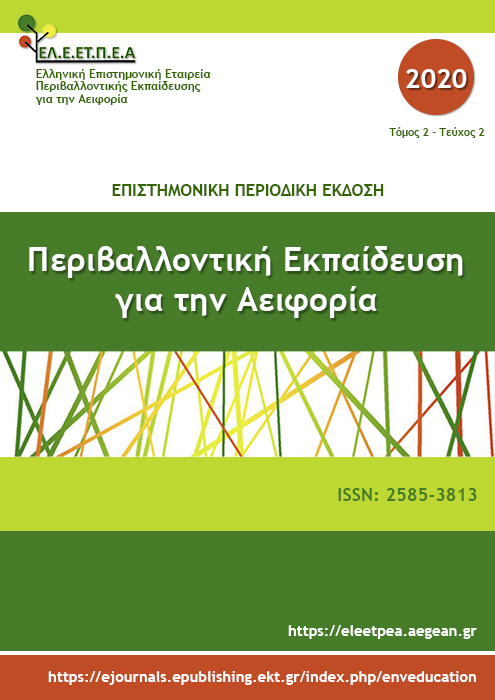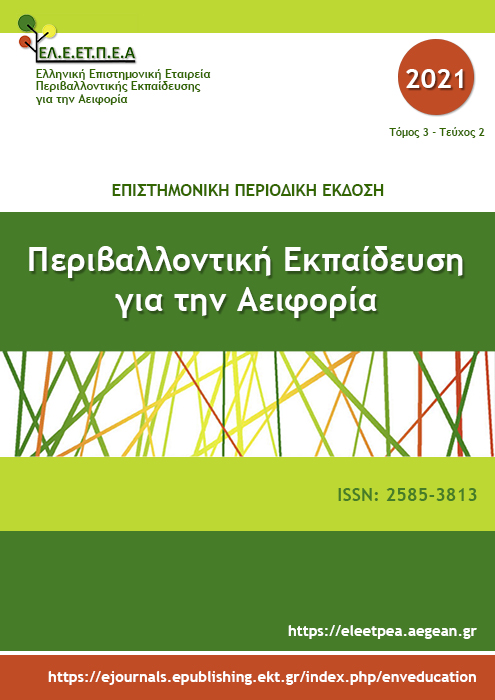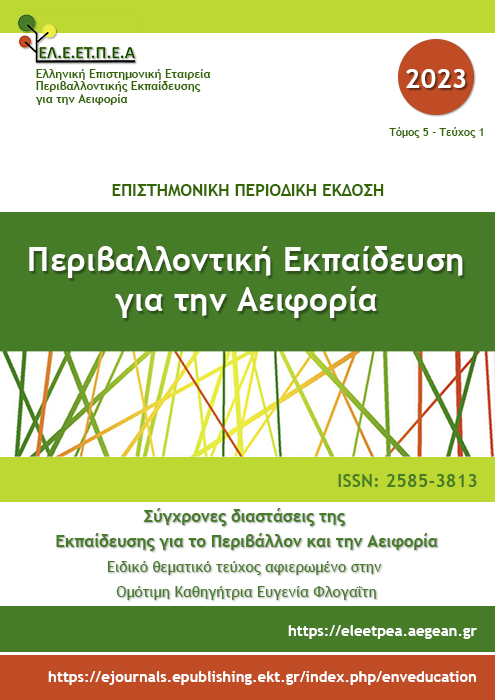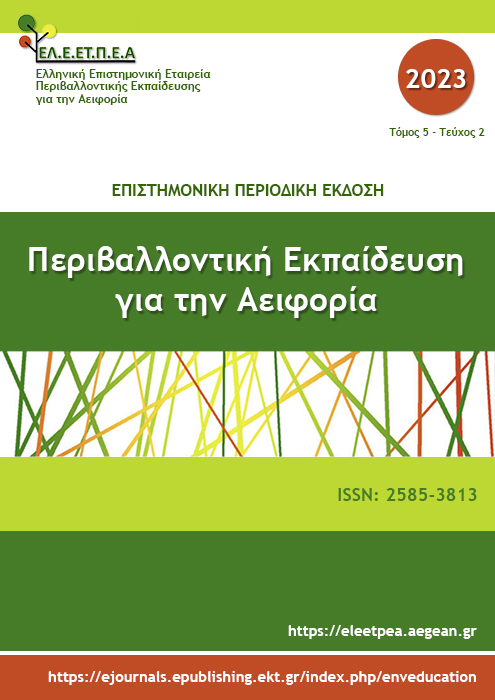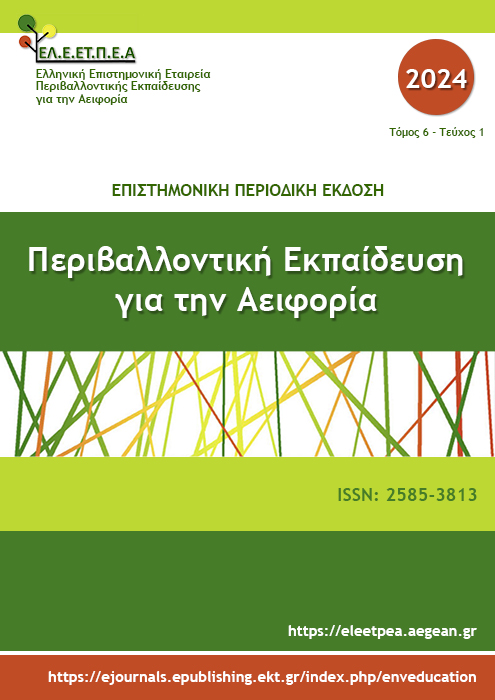Έρευνα αξιολόγησης εκπαιδευτικού υλικού περιβαλλοντικής εκπαίδευσης ενηλίκων. Μία μελέτη περίπτωσης
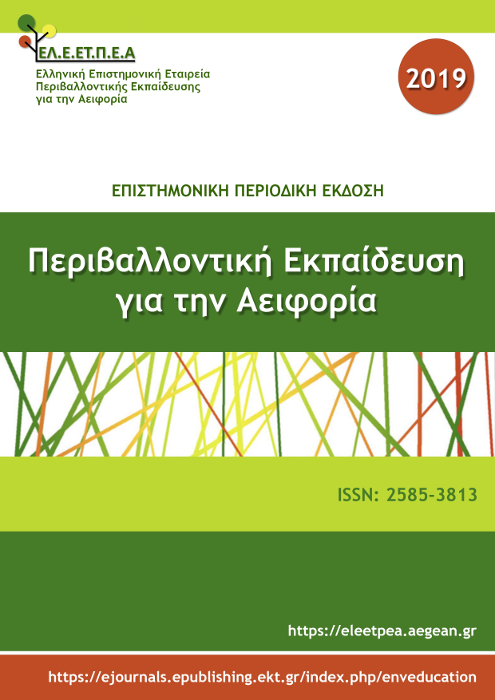
Περίληψη
Το παρόν άρθρο παρουσιάζει τη μελέτη περίπτωσης μιας έρευνας αξιολόγησης εκπαιδευτικού υλικού περιβαλλοντικής εκπαίδευσης ενηλίκων, η οποία σχεδιάστηκε και διενεργήθηκε στο πλαίσιο του ερευνητικού έργου «Αειφόρος Τουριστική Ιστιοπλοϊκή Περιήγηση». Ο σχεδιασμός, η ανάπτυξη και αξιολόγηση του υλικού βασίστηκαν σε μια θεώρηση που επιχειρεί να ορίσει με νέο τρόπο τα κριτήρια ποιότητας και αποτελεσματικότητας, δίνοντας έμφαση στο πλαίσιο υλοποίησης του προγράμματος. Υιοθετήθηκε η προσέγγιση της εξελικτικής διαμορφωτικής αξιολόγησης μέσα από μια σπειροειδή πορεία ανατροφοδότησης του σχεδιασμού του εκπαιδευτικού υλικού, που στο πλαίσιο μιας εποικοδομιστικής θεώρησης δίνει προτεραιότητα σε συνεργατικές και αναστοχαστικές διαδικασίες ενώ είναι προσανατολισμένη στη χρηστικότητα του όλου εγχειρήματος. Για τη συλλογή των δεδομένων χρησιμοποιήθηκαν συζητήσεις σε ομάδες εστίασης και επακόλουθη έρευνα επισκόπησης με τη χρήση ερωτηματολογίου. Τα αποτελέσματα της έρευνας επιβεβαίωσαν σε μεγάλο βαθμό τις επιλογές της ερευνητικής ομάδας με άξονες τα κριτήρια σχεδιασμού του εκπαιδευτικού υλικού, ενώ οι αμφιβολίες που εκφράστηκαν σε σχέση με συγκεκριμένα σημεία/ διαστάσεις του υλικού οδήγησαν σε διορθωτικές παρεμβάσεις.
Λεπτομέρειες άρθρου
- Πώς να δημιουργήσετε Αναφορές
-
Γρίλλια Π.-Μ., & Δασκολιά Μ. (2019). Έρευνα αξιολόγησης εκπαιδευτικού υλικού περιβαλλοντικής εκπαίδευσης ενηλίκων. Μία μελέτη περίπτωσης. Περιβαλλοντική Εκπαίδευση για την Αειφορία, 1(1), 25–43. https://doi.org/10.12681/ees.17357
- Ενότητα
- Articles

Αυτή η εργασία είναι αδειοδοτημένη υπό το CC Αναφορά Δημιουργού 4.0.
Οι συγγραφείς διατηρούν τα πνευματικά δικαιώματα και παρέχουν στο περιοδικό το δικαίωμα της πρώτης δημοσίευσης μαζί με την αδειοδότηση της εργασίας με CC-BY-NC-SA, που επιτρέπει σε άλλους να μοιράζονται αυτή την εργασία με αναγνώριση του συγγραφικού δικαιώματος και την αρχική δημοσίευση σε αυτό το περιοδικό.


